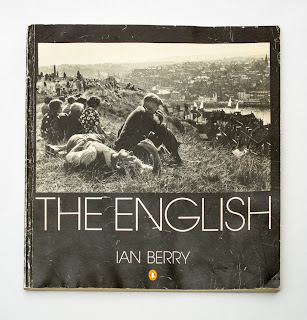Hmm. Well. Not everyone wants to make pretty postcard pictures.
 View: https://www.youtube.com/watch?v=bdaxV2ieZgY
View: https://www.youtube.com/watch?v=bdaxV2ieZgY
Since this was a sort of instructional video, I wanted to make notes as thoughts hit me while watching
---------------------------------
Bitter much?
The images he *does* like do have a certain timeless quality, although the Raymond Moore shots remind me of a Les Dawson piano part, so intentionally bad that they are almost good.
The Raymond Depardon shot is quite different, and does just what he said on the tin.
Michael Kanna is apparently not allowed to produce polished photographs. The speaker doesn't like moody, dark and manipulative mono images of concentration camps, but shows a picture of railway tracks that is none of those things. It also seems that 'not getting' art isn't unique to us non-artists. (sigh)
Faye Godwin gets a pass, possibly because she shot in a different age and produced work characteristic of that time.
He really doesn't like Thomas Heaton.
He really really doesn't like Michael K, having almost been fooled into liking him before he was wise
"A lot of people will find this very condescending and pretentious" (but because I'm so serious about this I can justify it to myself).
---------------------------------
It was interesting, and yes, there's a difference between a modern polished landscape shot that is intended to catch and please the eye and photographs that are intentionally designed not to do that.
I find it saddening that the 'art' world can't help but pour scorn on the non-art world that simply wants to produce pictures that make people happy. Perhaps it's jealousy, that others can make money and get recognition for climing a mountain in freezing conditions to shoot a sunrise at 5am, rather than for taking snaps of rubbish on a verge (yes, this is sarcasm - I am assuming the images he showed weren't snaps). Perhaps there's no way for those who feel they belong to the group of people that call themselves 'artists' to live in peace with others that approach their ground?
FWIW I had no idea what he was going to say, and went into this with, as much as is reasonably possible, an open mind.
 JD 2-099 by Fraser White, on Flickr
JD 2-099 by Fraser White, on Flickr



